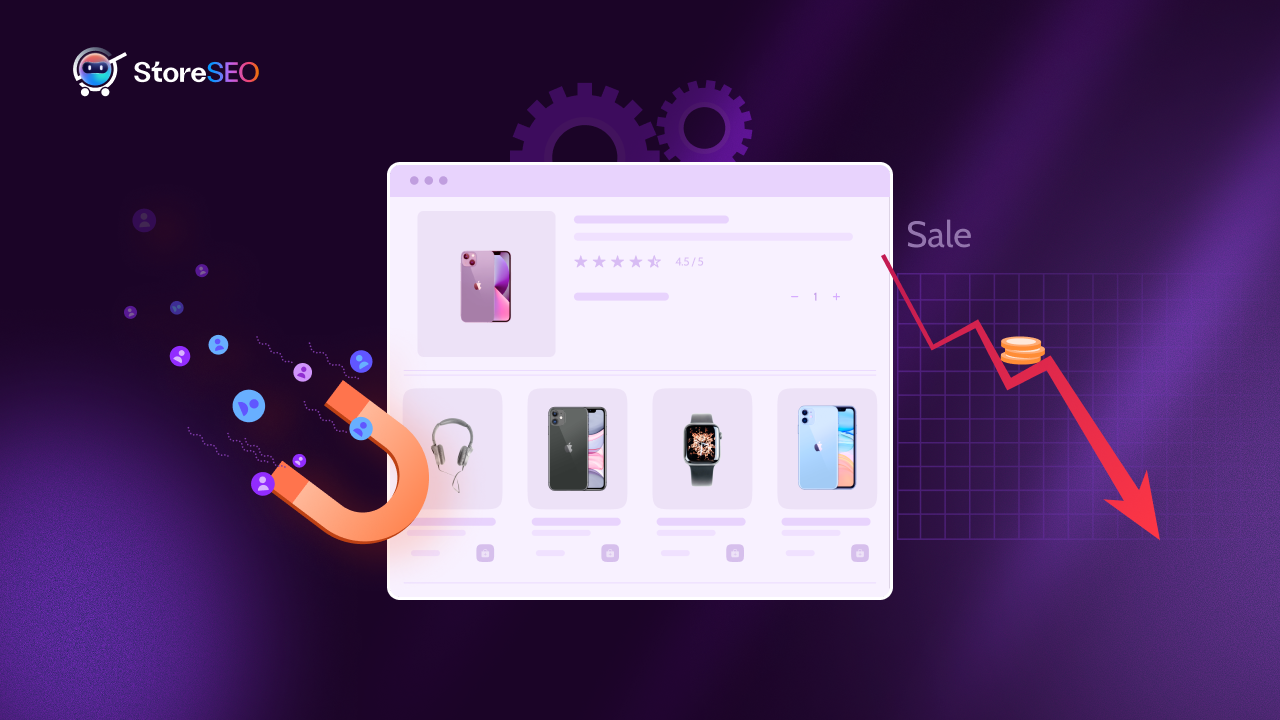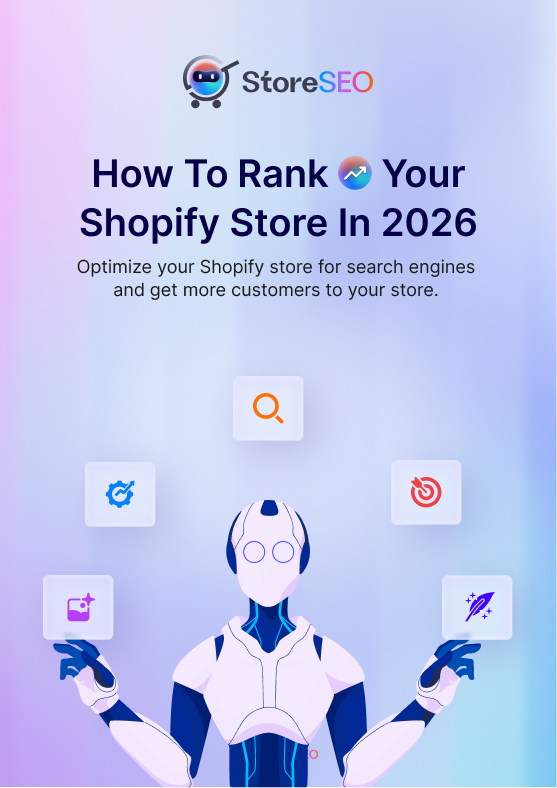Sztuczna inteligencja (AI) zmienia marketing na wiele sposobów. Firmy coraz częściej wykorzystują AI, aby usprawnić komunikację i interakcję z odbiorcami. Plan marketingowy oparty na sztucznej inteligencji Oznacza to wykorzystanie inteligentnych systemów komputerowych do planowania, realizacji i optymalizacji działań marketingowych. Oszczędza to czas, zapewnia dogłębną wiedzę o klientach i zwiększa skuteczność marketingu.

W tym wpisie na blogu przedstawimy krok po kroku przewodnik po tworzeniu planu marketingowego opartego na sztucznej inteligencji. Pomoże Ci on wykorzystać sztuczną inteligencję, aby Twój marketing był bardziej spersonalizowany, efektywny i dochodowy.
1. Zrozumienie marketingu opartego na sztucznej inteligencji
Marketing oparty na sztucznej inteligencji (AI) wykorzystuje technologie takie jak uczenie maszynowe, przetwarzanie języka naturalnego i analityka predykcyjna, aby ulepszać strategie marketingowe. Te narzędzia AI analizują duże ilości danych, uczą się na ich podstawie i podejmują zautomatyzowane decyzje lub prognozy.
Uczenie maszynowe pomaga komputerom znajdować wzorce w danych i ulepszać je z czasem. Przetwarzanie języka naturalnego (NLP) umożliwia komputerom rozumienie języka ludzkiego, co usprawnia interakcje z klientami i analizę treści. Analityka predykcyjna wykorzystuje dane historyczne do prognozowania przyszłych zachowań klientów.
Według raportu przewiduje się, że wykorzystanie sztucznej inteligencji w marketingu będzie rosło w tempie średniorocznego wzrostu (CAGR) wynoszącym 30.6% od 2025 do 2032, co świadczy o dużym przyjęciu tego rozwiązania ze względu na korzyści takie jak redukcja kosztów i większa personalizacja.
2. Określ jasne cele marketingowe
Skuteczny plan marketingowy oparty na sztucznej inteligencji zaczyna się od ustalenia precyzyjnych celów. Cele te kierują narzędziami AI w kwestii rezultatów, które należy osiągnąć.
Twoje cele powinny być SMART: Konkretny, mierzalny, osiągalny, istotny i ograniczony czasowoNa przykład możesz postawić sobie za cel zwiększenie sprzedaży w handlu elektronicznym o 15% w ciągu najbliższych sześciu miesięcy, powiększenie listy subskrybentów poczty e-mail o 20% lub obniżenie wskaźnika odejść klientów o 10%.
Wyznaczanie jasno określonych celów pozwala na skoordynowanie działań zespołu i sztucznej inteligencji, co ułatwia mierzenie sukcesu i skuteczną optymalizację kampanii.
3. Zbieraj i integruj dane wysokiej jakości
Siła sztucznej inteligencji w dużej mierze zależy od jakości i ilości wykorzystywanych przez nią danych. Zbieraj dane z wielu źródeł, w tym z analityki witryny internetowej, systemów zarządzania relacjami z klientami (CRM), platform mediów społecznościowych, raportów z marketingu e-mailowego i opinii klientów.
Użyj narzędzi do integracji danych, takich jak Zapier, Segment lub natywne integracje CRM, aby ujednolicić wszystkie te dane na jednej platformie. Czyste, dokładne i spójne dane są kluczowe, ponieważ modele AI trenowane na nierzetelnych danych generują mało wiarygodne wyniki.
Według IBM, słaba jakość danych kosztuje gospodarkę USA około $3,1 biliona rocznie, podkreślając znaczenie dobrych danych w marketingu opartym na sztucznej inteligencji.
4. Analizuj spostrzeżenia klientów za pomocą sztucznej inteligencji
Sztuczna inteligencja może segmentować klientów na podstawie zachowań, preferencji, historii zakupów i danych demograficznych. Wykorzystując algorytmy uczenia maszynowego, sztuczna inteligencja identyfikuje wzorce niewidoczne dla ludzkich analityków.
Modele predykcyjne mogą prognozować intencje zakupowe, wartość klienta w całym okresie jego życia (LTV) i prawdopodobieństwo odejścia. Ta dogłębna analiza pomaga w tworzeniu szczegółowych person klientów na potrzeby marketingu ukierunkowanego.
Na przykład narzędzie sztucznej inteligencji firmy Salesforce o nazwie Einstein pomaga marketerom segmentować klientów i przewidywać zaangażowanie, umożliwiając spersonalizowane doświadczenia, które zwiększają współczynniki konwersji.
5. Personalizuj kampanie marketingowe za pomocą sztucznej inteligencji
Personalizacja to jedna z największych zalet marketingu opartego na sztucznej inteligencji. Sztuczna inteligencja personalizuje e-maile, treści na stronach internetowych, reklamy i rekomendacje produktów, analizując zachowania poszczególnych klientów.
Na przykład silnik rekomendacji Amazona generuje 35% przychodów wyświetlając produkty w oparciu o historię przeglądania i zakupów użytkowników.
Narzędzia oparte na sztucznej inteligencji, takie jak Dynamic Yield i Adobe Target, umożliwiają firmom automatyzację personalizacji treści na dużą skalę, co przekłada się na poprawę zadowolenia klientów i sprzedaży.
6. Optymalizacja kanałów marketingowych za pomocą sztucznej inteligencji
Sztuczna inteligencja potrafi śledzić i oceniać skuteczność różnych kanałów marketingowych, takich jak Google Ads, Facebook, Instagram i kampanie e-mailowe, w czasie rzeczywistym.
Narzędzia do ustalania stawek oparte na sztucznej inteligencji automatycznie dostosowują wydatki na reklamę, aby uzyskać najlepszy zwrot z inwestycji, analizując dane dotyczące skuteczności i konkurencji.
Przykładowo funkcja Google Ads Smart Bidding wykorzystuje uczenie maszynowe do usprawnienia zarządzania stawkami, zwiększenia współczynników konwersji i obniżenia kosztów.
7. Automatyzacja zadań marketingowych
Korzystanie z narzędzi automatyzacji opartych na sztucznej inteligencji może zaoszczędzić marketerom znaczną ilość czasu. Chatboty, takie jak Drift czy ManyChat, odpowiadają na zapytania klientów natychmiast, 24/7. Narzędzia do e-mail marketingu, takie jak Mailchimp i HubSpot, automatyzują wysyłanie spersonalizowanych sekwencji wiadomości e-mail w oparciu o zachowania.
Automatyzacja zapewnia terminowe działania następcze i spójne zaangażowanie bez konieczności ręcznego wysiłku. Pozwala również marketerom skupić się na zadaniach strategicznych, podczas gdy rutynowe zadania przebiegają sprawnie.
8. Wdrażanie strategii treści opartych na sztucznej inteligencji
Wykorzystaj potencjał sztucznej inteligencji, aby przekształcić proces tworzenia treści, korzystając z narzędzi usprawniających badania, pisanie i optymalizację.
Sztuczna inteligencja potrafi analizować trendy, przeprowadzać dogłębne badania słów kluczowych SEO i generować wysokiej jakości wersje robocze treści dostosowane do potrzeb odbiorców. Na przykład Generator Blogów StoreSEO AI wyróżnia się tym, że umożliwia marketerom łatwe tworzenie postów na blogu zoptymalizowanych pod kątem SEO.
Wystarczy wprowadzić temat lub słowo kluczowe i Generator blogów StoreSEO AI tworzy angażujące, przyjazne dla wyszukiwarek artykuły, wyposażone w zoptymalizowane tytuły, meta opisy i strategiczne rozmieszczenie słów kluczowych, oszczędzając wiele godzin ręcznej pracy i zwiększając ruch organiczny.
9. Monitoruj i udoskonalaj za pomocą analizy AI
Platformy AI stale monitorują skuteczność kampanii i powiadamiają o wszelkich nagłych zmianach lub problemach. Narzędzia takie jak Tableau i Analiza Google 4. Wykorzystuj analizy wspomagane przez sztuczną inteligencję do wykrywania trendów i anomalii.

Dzięki sztucznej inteligencji marketerzy mogą przewidywać przyszłe rezultaty i otrzymywać sugestie dotyczące korekt, zanim problemy się pojawią. Dzięki temu marketing staje się bardziej elastyczny i skuteczny.
10. Aspekty etyczne i prywatność danych w marketingu AI
Chociaż sztuczna inteligencja oferuje ogromne korzyści, marketerzy muszą korzystać z niej odpowiedzialnie. Przestrzegaj przepisów o ochronie prywatności klientów, takich jak RODO i CCPA, zapewniając transparentność w gromadzeniu danych i korzystaniu ze sztucznej inteligencji.
Regularnie testuj modele sztucznej inteligencji pod kątem błędów i nieścisłości, które mogłyby zaszkodzić klientom lub zaszkodzić reputacji Twojej marki. Budowanie zaufania poprzez etyczne wykorzystanie sztucznej inteligencji jest kluczowe dla długoterminowego sukcesu.
Rozwiązywanie problemów etycznych i prywatności podczas korzystania ze sztucznej inteligencji w marketingu
Wdrażając sztuczną inteligencję w marketingu, należy wziąć pod uwagę szereg kwestii etycznych i dotyczących prywatności, aby utrzymać zaufanie konsumentów, przestrzegać przepisów i zapewnić odpowiedzialne korzystanie ze sztucznej inteligencji:
Prywatność danych i zgoda
Marketing oparty na sztucznej inteligencji (AI) w dużej mierze opiera się na gromadzeniu i przetwarzaniu ogromnych ilości danych osobowych. Kluczowe jest uzyskanie wyraźnej, świadomej zgody użytkowników przed zbieraniem danych oraz ścisłe przestrzeganie przepisów o ochronie prywatności (takich jak RODO, CCPA). Marketerzy muszą transparentnie informować o tym, jakie dane są gromadzone, jak są wykorzystywane i komu są udostępniane.
Bezpieczeństwo danych
Ochrona danych klientów przed naruszeniami i nieautoryzowanym dostępem jest obowiązkowa, aby zapobiec nadużyciom i kradzieży tożsamości. Solidne szyfrowanie, kontrola dostępu i regularne audyty bezpieczeństwa pomagają chronić poufne informacje.
Stronniczość i uczciwość
Systemy AI mogą nieumyślnie dziedziczyć lub wzmacniać błędy występujące w danych szkoleniowych, co prowadzi do dyskryminacyjnych wyników marketingowych (np. wykluczania określonych grup demograficznych). Konieczne jest regularne audytowanie modeli AI pod kątem błędów oraz zapewnienie uczciwości w zakresie targetowania i personalizacji.
Przejrzystość i wyjaśnialność
Konsumenci i organy regulacyjne coraz częściej domagają się przejrzystości w zakresie podejmowania decyzji opartych na sztucznej inteligencji. Marketerzy powinni być w stanie wyjaśnić procesy AI w zrozumiały sposób, dostarczając wglądu w źródła danych i kryteria decyzyjne wykorzystywane w personalizacji lub targetowaniu.
Manipulacja i autonomia
Etyczny marketing AI unika manipulacyjnych taktyk, które wykorzystują luki w zabezpieczeniach lub kreują zachowania uzależniające. Poszanowanie autonomii konsumenta oznacza unikanie nadmiernie perswazyjnych lub zwodniczych treści generowanych przez AI.
Odpowiedzialność
Należy ustanowić jasne ramy odpowiedzialności, określające, kto odpowiada za decyzje i wyniki systemów AI, w tym zewnętrzni dostawcy AI. Zapewni to możliwość odpowiedniego reagowania na błędy, szkody i uprzedzenia.
Wykorzystanie mediów syntetycznych i deepfake’ów
Coraz powszechniejsze wykorzystywanie syntetycznych mediów generowanych przez sztuczną inteligencję (tzw. deepfake) budzi obawy dotyczące dezinformacji i oszustw. Etyczne praktyki marketingowe wymagają jasnego informowania o korzystaniu z treści syntetycznych.
Minimalizowanie intruzywności
Marketing oparty na sztucznej inteligencji powinien równoważyć personalizację z poszanowaniem granic konsumenta, a także unikać nadmiernego targetowania lub ingerencji w prywatne aspekty życia użytkownika.
Ciągły nadzór etyczny
W miarę rozwoju sztucznej inteligencji konieczne staje się ciągłe monitorowanie i aktualizowanie wytycznych etycznych, aby móc reagować na nowe wyzwania i technologie.
Popraw zaangażowanie klientów dzięki strategiom marketingowym opartym na sztucznej inteligencji
Marketing oparty na sztucznej inteligencji to skuteczny sposób na poprawę dotarcia do klientów i zaangażowania ich w działania. Wyznaczając jasne cele, gromadząc wysokiej jakości dane, uzyskując dogłębną wiedzę o klientach, personalizując kampanie, optymalizując kanały, automatyzując zadania, wykorzystując sztuczną inteligencję do tworzenia treści i stale monitorując skuteczność, możesz stworzyć plan marketingowy, który przyniesie lepsze rezultaty.
Rozważne korzystanie ze sztucznej inteligencji, zwracając uwagę na etykę i prywatność, pomoże Twojej firmie rozwijać się odpowiedzialnie w cyfrowym świecie.
Czy nasz blog okazał się dla Ciebie przydatny? Jeśli tak, to proszę zapisz się na nasz blog aby uzyskać więcej samouczków, przewodników, wiadomości i aktualizacji.









